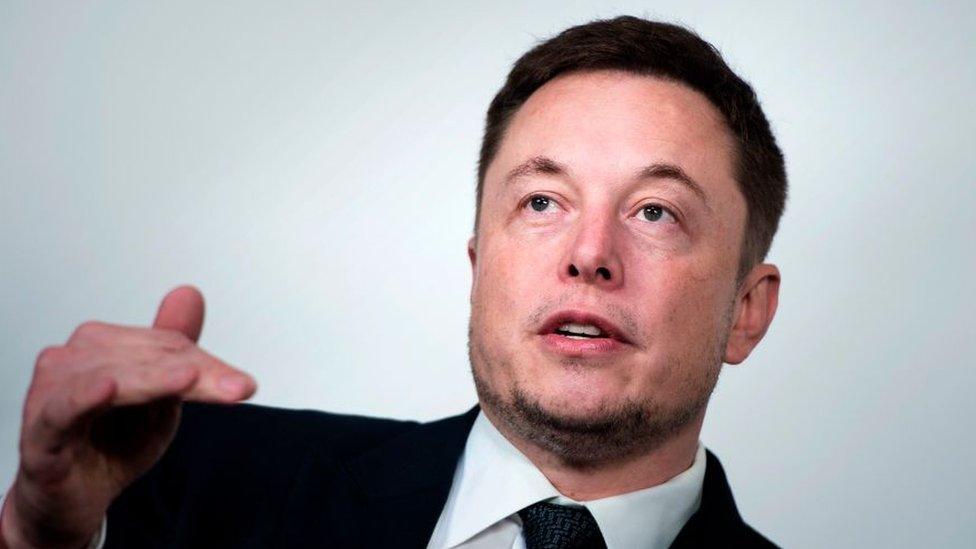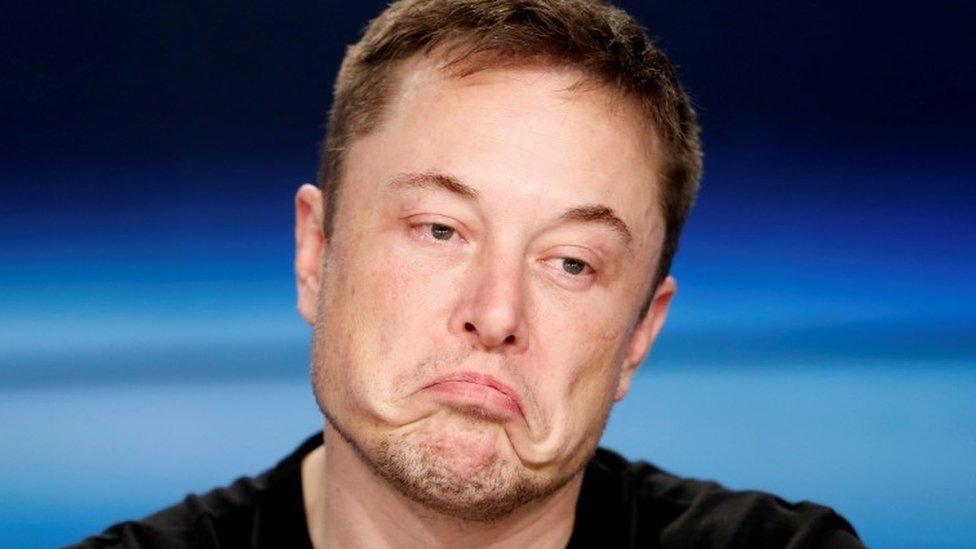Tesla board says there are buyout talks with Elon Musk
- Published

Tesla's board has confirmed that it will consider the proposal by chief executive Elon Musk to take it private.
A statement was issued by six members of the electric carmaker's board after Mr Musk tweeted to say he had the funding to de-list the company.
The board had "met several times over the last week" to discuss going private, the statement said.
They said this "included discussion as to how being private could better serve Tesla's long-term interests".
Mr Musk said in his tweet on Tuesday that shareholders would be offered $420 (£326) per share, valuing the business at more than $70bn.
This would make it the biggest deal of its kind, surpassing the purchase of utility TXU Corp in 2007 for $44bn by a consortium.
The brief statement by six of the nine board directors said Mr Musk had "opened a discussion" about taking the company private last week.
The discussions "addressed the funding for this to occur", the six directors added. They did not include Mr Musk, his brother Kimbal Musk, and Steve Jurvetson, a venture capitalist.
'Irregular' announcement
The board statement came amid questions about how Mr Musk opted to disclose the possible de-listing to investors.
While companies are allowed to make announcements via social media, typically they also make a simultaneous regulatory filing, said Andrew M Calamari, a partner at the law firm Finn Dixon & Herling and former director of the New York office of the Securities and Exchange Commission, the US market regulator.
"Just in terms of the style of this, it strikes me as very irregular," Mr Calamari said.
"It also raises questions about his intent," he added. "Was he in earnest in what he's saying, or does he have some other motive" like influencing the stock price.
Tesla shares reached a peak of $368 after Mr Musk's tweets on Tuesday, before trading on the stock market was halted.
Trades resumed later that afternoon, after the company published an email from Mr Musk to employees elaborating on the plans.
Tesla shares surged close to their all-time high of $385, which they touched almost a year ago, but fluctuated on Wednesday after the board members issued their statement.
'Wild swings'
In the staff memo, external, Mr Musk explained why he wanted to take the company private.
"As a public company, we are subject to wild swings in our stock price that can be a major distraction for everyone working at Tesla, all of whom are shareholders," he wrote.
"Being public also subjects us to the quarterly earnings cycle that puts enormous pressure on Tesla to make decisions that may be right for a given quarter, but not necessarily right for the long term," he wrote.
He added that the company was "the most shorted stock in the history of the stock market" - a trading strategy which assumes share prices will fall - so "being public means that there are large numbers of people who have the incentive to attack the company".
Those traders are likely to have lost money when the share price rose on the announcement about a delisting.
Questions continue
Mr Musk already owns 20% of the company. He said his intention in taking the company private was not to increase his personal holding and his plan would give existing investors the option to retain their shares.
Regulators are likely to be interested in what evidence exists - such as agreements with investors or banks - for Mr Musk's claim that funding was "secured", Mr Calamari said.
The Securities and Exchange Commission, the US market regulator, has inquired about the issue, the Wall Street Journal reported, external.
The structure of the deal also remains ambiguous, said Adam C Pritchard, professor of securities law at the University of Michigan.
If more than 2,000 investors opt to retain their shares, then the firm would be subject to the disclosure rules of a public company, he added.
"Intuitively it doesn't make sense because it would still be a public entity, and the public entity status is what is apparently objectionable to Musk," Mr Pritchard said.
Steven Kaplan, a University of Chicago professor who researches private equity, said it would be difficult for Mr Musk to raise the necessary finance when Tesla has still not made a profit.
"The company is cash-flow negative. How do you use any debt on a company that is cash-flow negative?" he said.
- Published8 August 2018
- Published8 August 2018
